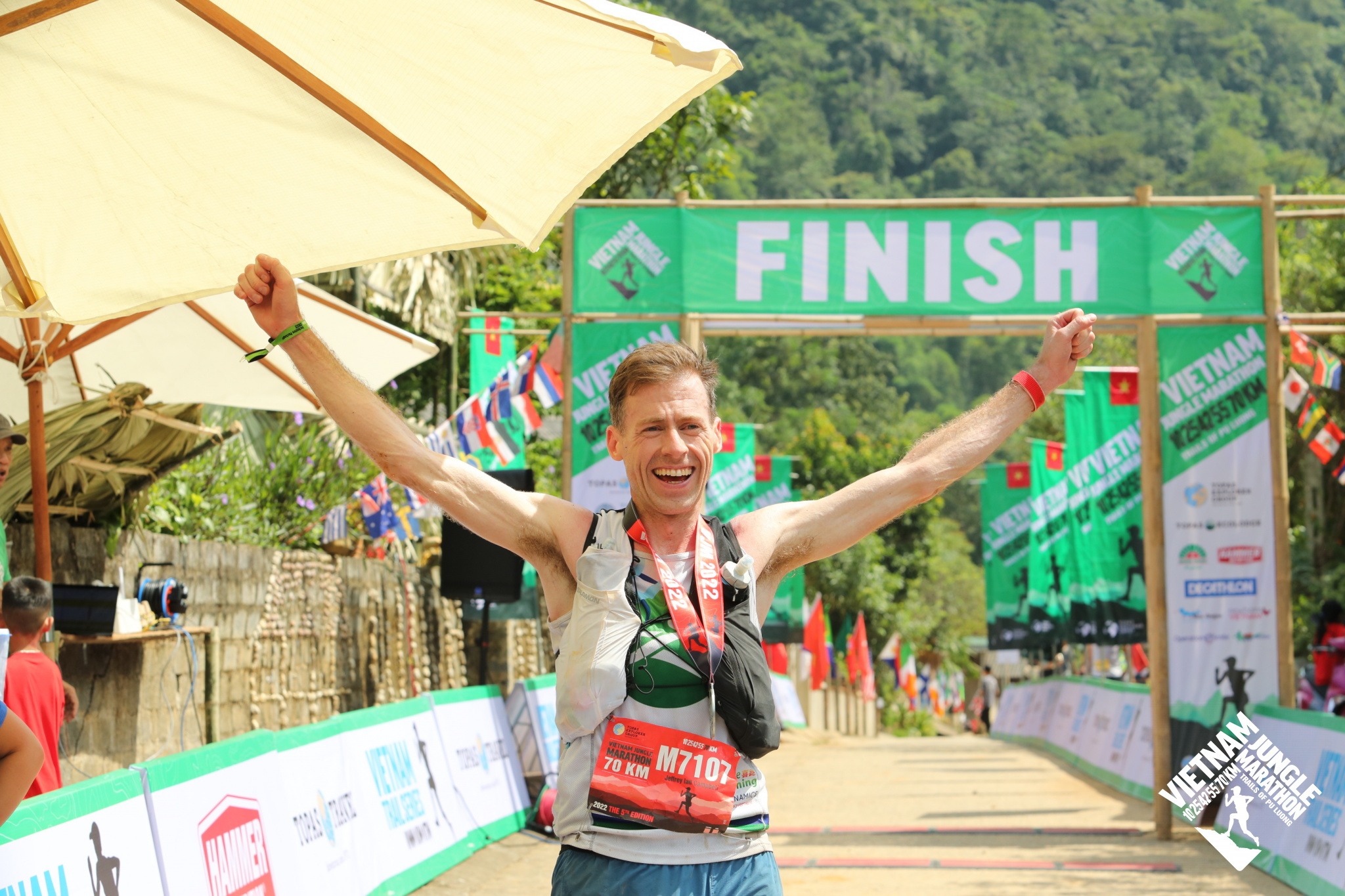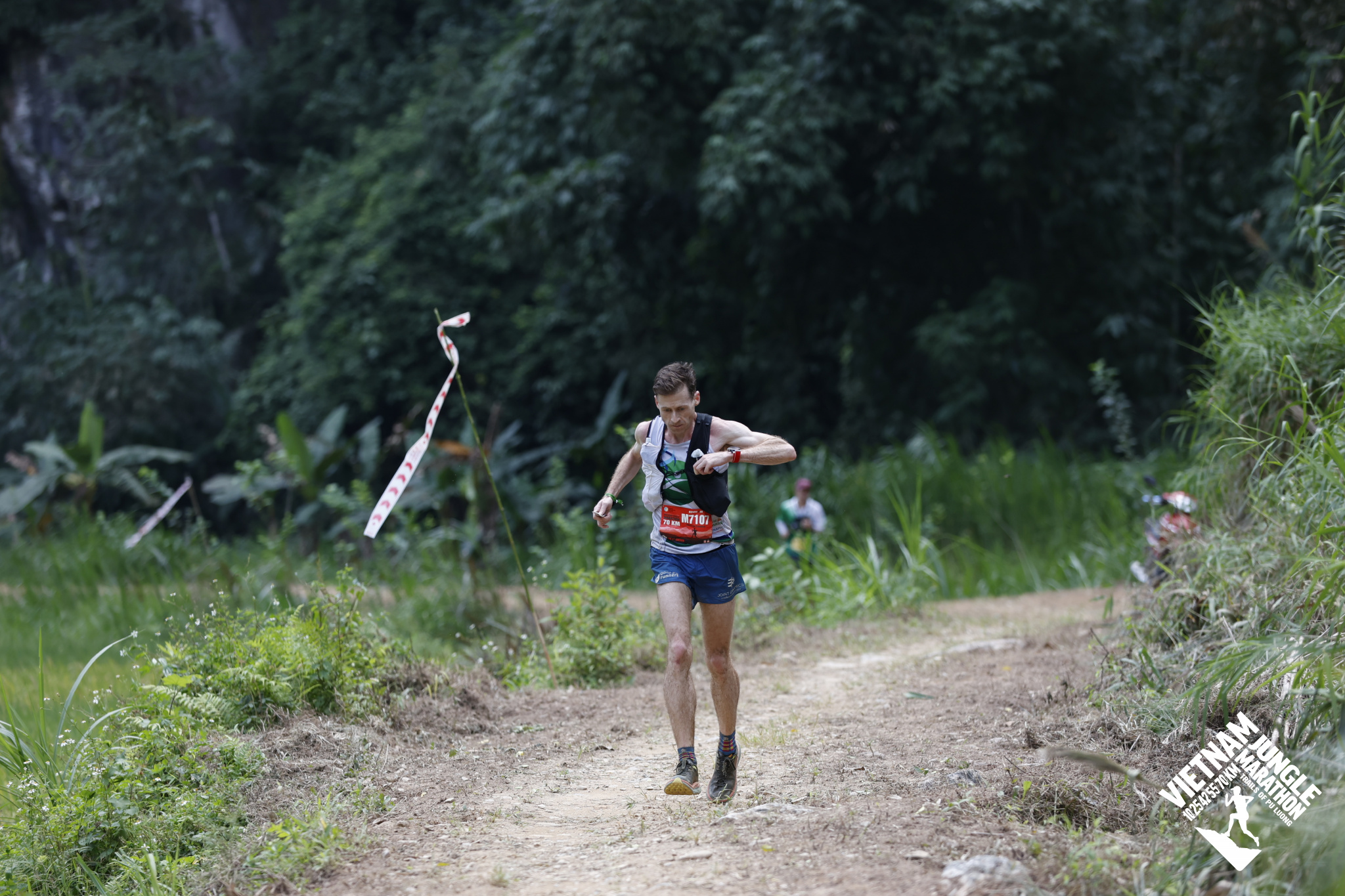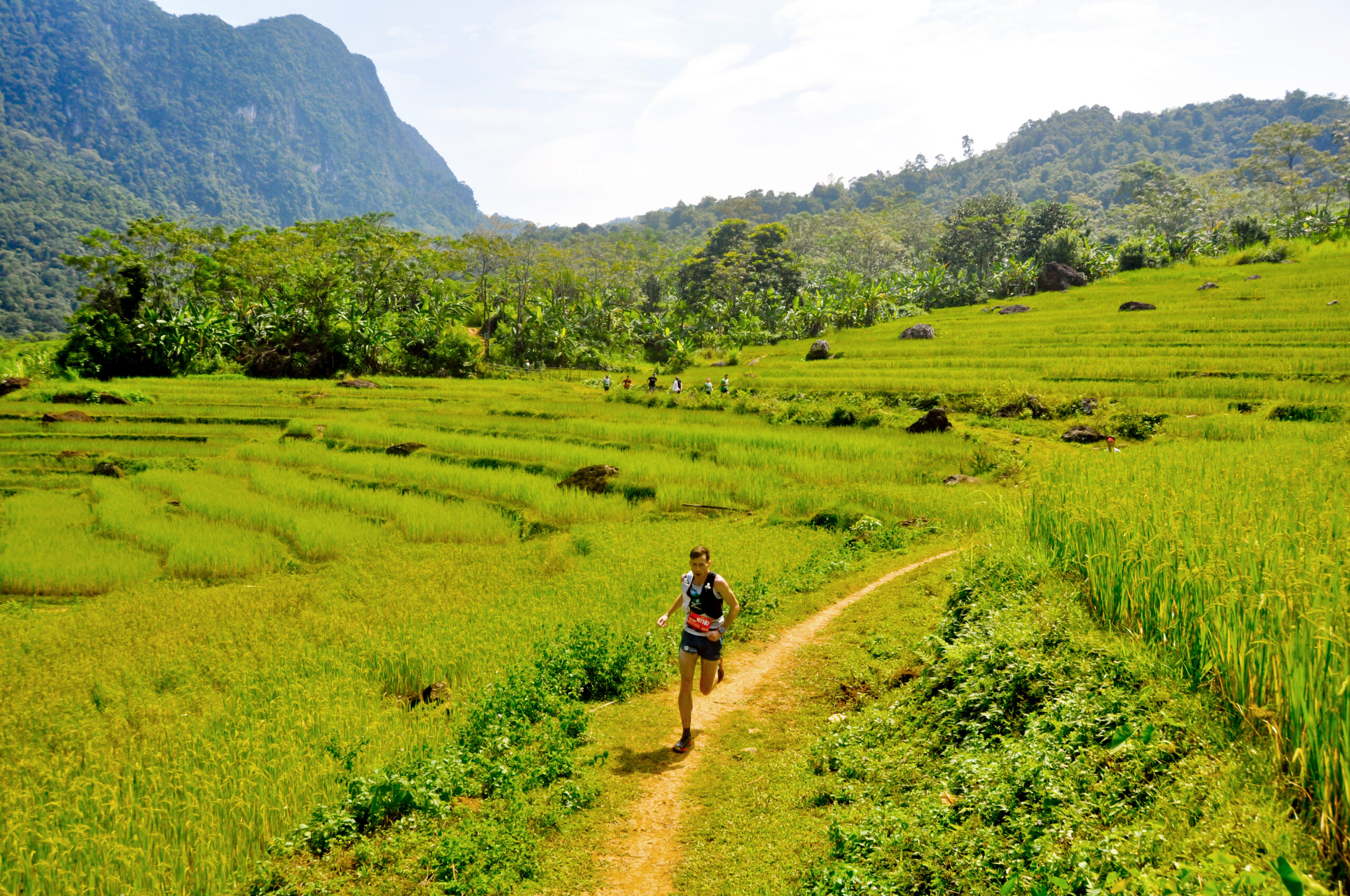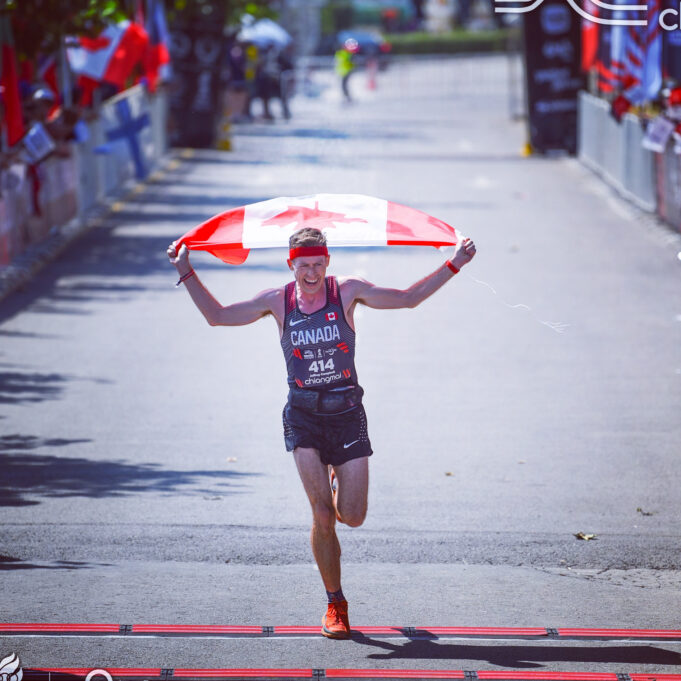At Vietnam Jungle Marathon Jeff Campbell added the 70k to his long list of running wins which include Oxfam Trailwalker 100k (twice), King of the Hills HK Series (three times), The North Face HK 50k, the Tahura Trail and the Ferei Dark 45 in Hong Kong. Here we talked to him about coming to running relatively late, how he fell for the sport, his training, what running brings to his life, and more.


Your running journey started relatively late. Can you tell the readers when you began running and what got you into it?
I only started running when I moved to Asia in 2014. At that time, I was an out-of-shape 32 year old office worker with no background in running or other competitive sports. I grew up playing mostly team sports like baseball and ice hockey at a recreational level. It was pure luck that the first people I met after moving to Hong Kong happened to be trail runners. I enjoyed the sport immediately. Within a year, I was taking my running more seriously and started to focus on how I could improve in races.
You lost a lot of weight when you began running – was that purely through the training or did getting active also impact how you ate? If so, how? And what is your approach to diet now?
Weight loss is always a combination of diet and training. Calories in, calories out. For me, the weight loss was a necessary part of getting faster and improving my performance, and it happened quite naturally as I started to increase my running volume. They say you can’t outrun a bad diet, but a high training volume will burn a LOT of calories! I feel like I’m at a good racing weight right now. I keep an eye on my weight, but I don’t have any strict rules or restrictions for diet.
At the beginning, what kind of distances were you racing? And how did you step up the distances?
In the first 1-2 years when I started running, I was almost exclusively running very short races (around 10-15km). I was pretty fast, but my body simply didn’t have the endurance for longer distances. So I focused on getting faster in those shorter races, while building my overall training volume to strengthen my legs. I then slowly started to creep up the race distances, from 15k to 30k, then to 50k, then to 65k, and finally up to my first 100k in 2018.
Each time you stepped up the distance, did you find your performance in terms of ranking was impacted?
It’s always tough for me when stepping up to a new distance. It’s like crossing into the unknown whenever I reach the point of the race when I’d never run that far before. Early in my running career, I had some bad experiences when jumping up to longer distances. My first road marathon in 2015 was a 3:59 disaster. I waited for over 18 months to train properly for my next marathon, and managed to improve to a 2:53. My first attempt at a 50k was at The North Face 50 in Hong Kong in 2015. I DNF’d. I waited two years to try that distance again. I returned to the TNF50 in 2017 and broke the course record. It was a slow progression with lots of bumps in the road, but I learned from each experience.


What advice would you give to newbies thinking of getting into longer ultra-distance races?
For any runner, it depends on what your goals are. As a general rule, most runners can improve by just running more. If you are training 50km per week, your performance will generally improve if you can gradually increase that to 80-100km. It is also helpful to do some higher intensity sessions 1-2 times per week. Some trail runners avoid track workouts or hill repeats, but the high intensity sessions can help improve your running economy over longer distances.
What is a typical week of training in Hong Kong for you? In terms of volume and the amount of easy vs hard sessions.
It depends on what races I have coming up on my calendar. But a typical week of training ahead of a big race will have me running 120-150km in total volume, with maybe +3,000-5,000m of vertical gain. That will include a handful of “doubles”, meaning days with a short run in the morning and a longer one in the evening. My coach will give me two high-intensity workouts per week, which could be either track workouts or hill repeats. Finally, I’ll do one long run on the weekend, trying to roughly match the elevation profile of my upcoming goal race.
What is your approach to training? We know you like to build in easy sessions – what does an easy/recovery session look like for you and what benefits do you think it brings?
I try to run the hard stuff hard and everything else easy. The hard workouts are really important to maximizing performance and adapting the body. At the same time, simply getting in a large amount of volume is necessary for building endurance. An easy session for me could be anything from a 30 minute flat run at 4:45/km pace, or a 2 hour super slow trail run catching up on some podcasts. Regardless, they should serve to add to my weekly volume, while not exhausting myself ahead of my next workout.


What metrics or tools do you use to quantify your sessions?
I generally structure my sessions using distance and target paces. My coach will look at power data pulled from my watch, but it’s not something that I focus on during a workout.
Do you use other metrics outside of running, for example HRV, sleep monitoring?
I track my weight using a smart scale. That’s about it.
How has being coached improved your running?
I’ve been working with Andy Dubois from Mile27 for about 5-6 years. He is very science-based and has helped me understand the training process. At this stage, I have a good idea of what types of workouts I need to run, but it is still very helpful to have someone there to provide objective guidance and feedback.
You have a marathon PB of 2:29:12. How do you feel that speed helps you on the ultra-races?
It helps on the flats! My marathon time is not fast compared to the true elite road runners, but it often gives me a relative advantage against other trail runners on flatter and non-technical terrain. But these days, we are seeing more elite road runners trying out trail racing, and I think that trend will continue.
We know you say running is the part of your day when you don’t think about anything else. What does running mean to you in this context? And besides fitness, what does running bring to your life?
Running brings me structure and purpose. It forces a certain amount of discipline and time management to make sure that all of the training is completed. Most of my days are full of multitasking between work, family and training. But when race day arrives, everything else fades away and there is nothing else on my mind other than the task at hand.
Recently you had the chance to wear the Team Canada kit and represent your country at the Worlds. What did that mean to you?
It was a huge honor, and a massive surprise to have been selected. When I started running 8 years ago, I would have never dreamed of becoming a national team athlete competing at the world championships. The whole experience was amazing. I ran the 40km Short Trail course, finishing as the fastest Canadian and 33rd overall.


You joined VJM and won it. What did you think of the race and will you be back for another Vietnam Trail Series race in future?
VJM was my first time racing in Vietnam, and the atmosphere was fantastic. I loved the great energy of all of the race staff and volunteers, and the fact that the local community was involved with the event. The trail running scene in Vietnam is growing rapidly, so it’s exciting to be part of that. I will absolutely be back.
Lastly, you visited the Blue Dragon Children’s Foundation Run Club after VJM. You were inspired by that experience – can you tell our readers what inspired you?
It was great to visit the Blue Dragon foundation’s HQ in Hanoi after the race. I had seen a number of the organization’s youth runners participating at VJM, but I had no idea about how inspiring some of their stories were. These were young kids who were driven to push themselves and achieve their goals. Sport is an amazing equalizer, and I think that’s especially true with running. I think the Blue Dragon foundation is doing a great job incorporating sport into its broader mission and programs. The next time I am in Hanoi, I will try to join one of the weekly runs with the kids.
Want to read another interview with a past VJM champ? Check out this one with VJM and VMM winner, Nguyen Thuy Dung.



